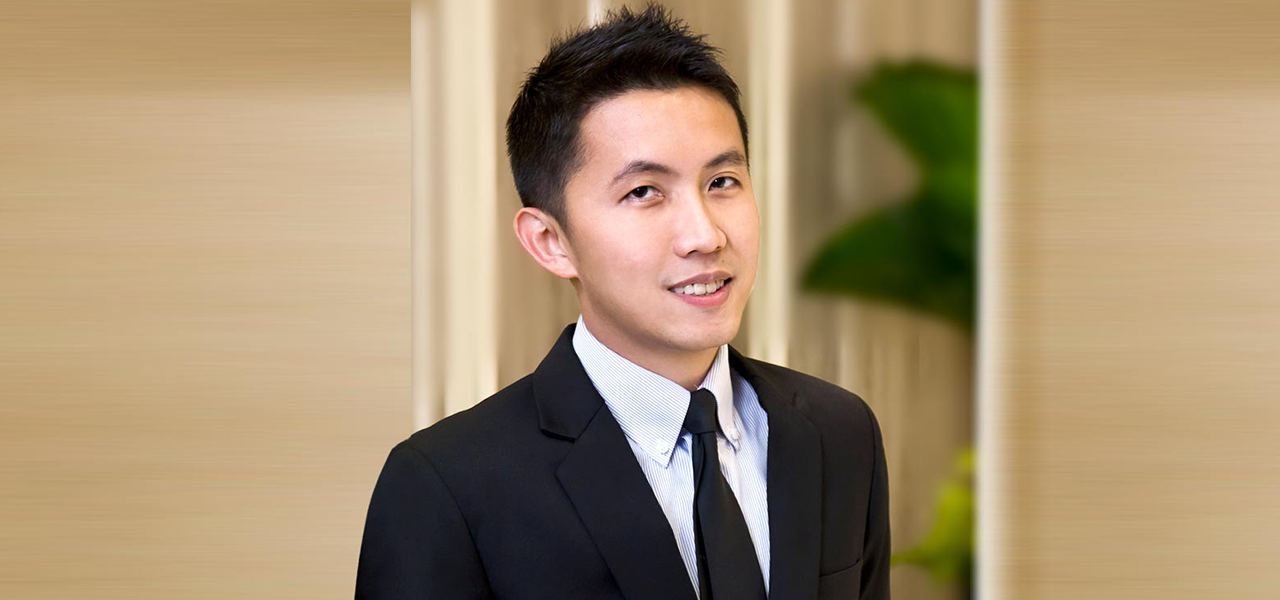MSE Student Diaries

Angelica Marie Franco Lite
Manager
Standard Chartered Bank
MSE current student
A calculated approach to scaling new heights
Facebook founder Mark Zuckerberg once famously said, “the biggest risk is not taking any risk.”
As a manager specialising in wholesale model and stress testing validations — the analysis of how financial institutions and firms perform in drastic economic scenarios, Angelica Marie Lite knows a thing or two about taking risks. And as much as tech moguls like Mr Zuckerberg advocate being a gamechanger in the world of business, Angelica has always prioritised the ability to gauge uncertainties and maximise investments, especially in the case of her postgraduate education, when she pursued a Master of Science in Economics (MSE) at SMU.
“I was able to learn from colleagues at my past and current jobs who received their postgraduate degrees from SMU,” reveals Angelica, who had graduated from the University of the Philippines with a Bachelor of Science in Business Economics, and has since worked in Singapore for several years before joining the MSE programme.
“They demonstrated a good balance of quantitative and conceptual expertise and were able to break concepts into pieces that are easily understood by senior management.”
Besides having had first-hand interactions with SMU alumni, Angelica also researched by attending multiple postgraduate education fairs. She found that SMU stood out for its “well-constructed and practical curriculum, which covers foundational courses and specialised topics allowing students to tailor their desired learning experience”.
Moreover, she wanted a part-time programme as she had already landed a job at Standard Chartered Bank as a Technical Lead - Corporate and Institutional Banking (CIB); and has since been promoted to the role of Manager Group Model Validation. Currently, she validates different types of models coded in different programming languages, involving credit risk and balance sheet stress testing. Compliance assessment is another key part of the role, to ensure that models are theoretically sound and are producing estimates in compliance with multiple regulations.
“I decided on a part-time programme to continue meeting my financial commitments in terms of helping my parents and siblings back home, as well as build my pool of personal savings,” shares Angelica, who had moved to Singapore in 2016 to be a Retail Credit Risk Analyst at UOB.
Another motivation behind her decision to pursue part-time study was the opportunity to instantly apply what she learned in school at her current job. The ability to study key concepts via seminars and lecture notes and incorporate the knowledge at work meant that she could deeply absorb the programme content through real-world application.
“Every time a class ended, I would ask myself, ‘what have I learned and how can I apply this to better validate the performance of models and their conceptual soundness?’,” says Angelica.
She did admit it was; however, a challenge balancing the scales in terms of her professional responsibilities and academic load, as well as managing family commitments from afar: Just before her final exams, Angelica found out that her parents, who live in the Philippines, had contracted severe Covid-19.
“My chest felt heavy, and my mind kept racing on what to do,” recalls Angelica.
“I approached it with optimism and level-headedness. Given that my siblings would rely on me for direction, and my parents also needed me to handle most of the caregiving remotely, I had to get a good handle on the situation.”
She navigated the difficult circumstances by communicating the issue with her line manager and SMU faculty, and found her professors to be incredibly compassionate, providing her with a leave of absence to miss certain classes and clarifications on topics she was unsure about. Thankfully, her parents also recovered from the virus, with Angelica successfully supervising their care from abroad whilst accomplishing both academic and work resposibilities.
The pandemic also meant that Angelica experienced blended learning — whereby online education syllabus is combined with place-based seminar learning and interactions, in her first term. She noted that her professors took great pains in constructing materials that were tailored for an online learning platform, and found creative methods to keep the class discussions interactive and fun.
“One key benefit of blended learning is that you can rewatch the recording of the session in case there are topics you did not quite understand,” shares Angelica.
“Another would be convenience, in the sense that the time needed to travel to class is eliminated. I could use the half-hour commute to campus to either eat dinner or go over the materials before class instead.”
The part-time MSE programme also takes two years, with classes held on weekday evenings and Saturday mornings. As such, Angelica was a stickler to realistic timelines, setting aside allocated windows for work, school and much-needed downtime to unwind from her hectic schedule.
In addition, she advises prospective students juggling both work and a postgrad programme to ensure that they communicate their academic schedule, such as study days and exam periods, to their team and supervisors, so as to manage both work and academic deliverables.
“As cliched as it may seem, time is a key and scarce resource,” says Angelica.
“We must learn to manage it as a constraint if we want to maximise the number of tasks we need to do for work, school, or even relaxation.”
And while some students may pursue their postgraduate studies as a means to finding a job, Angelica had already landed several positions in risk analysis prior to embarking on the MSE programme. She had also worked as a risk analyst in ANZ Manila, fresh upon graduating with a Bachelor’s degree, handling New Zealand Retail Risk. Therefore, her motivations for furthering her education therefore hinged upon ambitions to elevate her knowledge base and technical competencies and propel herself towards an ultimate career goal.
“Most of the models at my job involved economic data, their behavior, and how it impacts the portfolios,” says Angelica.
“This was where I found myself yearning for a deeper understanding of economics and econometric techniques to do my job better and attain my dream of becoming an institution’s economist someday.”
Last updated on 02 Jul 2021 .




